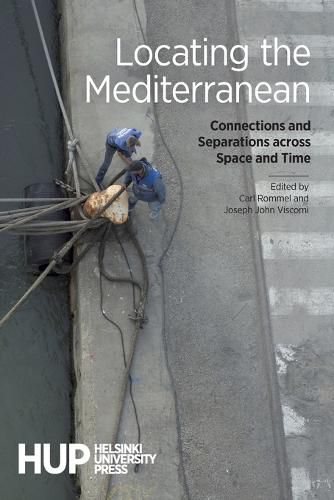Readings Newsletter
Become a Readings Member to make your shopping experience even easier.
Sign in or sign up for free!
You’re not far away from qualifying for FREE standard shipping within Australia
You’ve qualified for FREE standard shipping within Australia
The cart is loading…






This title is printed to order. This book may have been self-published. If so, we cannot guarantee the quality of the content. In the main most books will have gone through the editing process however some may not. We therefore suggest that you be aware of this before ordering this book. If in doubt check either the author or publisher’s details as we are unable to accept any returns unless they are faulty. Please contact us if you have any questions.
Until today, anthropological studies of locality have taken primary interest in local subjects leading local lives in local communities. Through a shift of conceptual emphasis from locality to location, the present volume departs from previous preoccupations with identity and belonging. Instead, Locating the Mediterranean brings together ethnographic examinations of processes that make locations and render them meaningful. In doing so, it stimulates debates on the interplay between location and region-making in history as well as anthropology.
The volume’s deeply empirical contributions illustrate how historical, material, legal, religious, economic, political, and social connections and separations shape the experience of being located in the geographical space commonly known as the Mediterranean region. Drawing from research in Melilla, Lampedusa, Istanbul, Nefpaktos/Lepanto, Tunisia, Beirut, Marseille, and elsewhere, the volume articulates location through the overlapping and incorporation of multiple social and historical processes.
Individual contributions are linked by the pursuit to rethink the conceptual frames deployed to study the Mediterranean region. Together, the volume’s chapters challenge strict geopolitical renderings of Europe, the Middle East, and North Africa and suggest how the ‘Mediterranean’ can function as a meaningful anthropological and historical category if the notion of ‘location’ is reinvigorated and conceptualised anew.
Carl Rommel is a researcher at the Department of Cultural Anthropology and Ethnology at Uppsala University. He is an anthropologist, whose research focuses on masculinity, sports, future-making and ‘projects’ in contemporary Egypt.
Joseph John Viscomi is a lecturer in European History in the Department of History, Classics and Archaeology at Birkbeck, University of London. He is a historian and anthropologist specialised in temporality, migration, and political processes in the Mediterranean region.
$9.00 standard shipping within Australia
FREE standard shipping within Australia for orders over $100.00
Express & International shipping calculated at checkout
This title is printed to order. This book may have been self-published. If so, we cannot guarantee the quality of the content. In the main most books will have gone through the editing process however some may not. We therefore suggest that you be aware of this before ordering this book. If in doubt check either the author or publisher’s details as we are unable to accept any returns unless they are faulty. Please contact us if you have any questions.
Until today, anthropological studies of locality have taken primary interest in local subjects leading local lives in local communities. Through a shift of conceptual emphasis from locality to location, the present volume departs from previous preoccupations with identity and belonging. Instead, Locating the Mediterranean brings together ethnographic examinations of processes that make locations and render them meaningful. In doing so, it stimulates debates on the interplay between location and region-making in history as well as anthropology.
The volume’s deeply empirical contributions illustrate how historical, material, legal, religious, economic, political, and social connections and separations shape the experience of being located in the geographical space commonly known as the Mediterranean region. Drawing from research in Melilla, Lampedusa, Istanbul, Nefpaktos/Lepanto, Tunisia, Beirut, Marseille, and elsewhere, the volume articulates location through the overlapping and incorporation of multiple social and historical processes.
Individual contributions are linked by the pursuit to rethink the conceptual frames deployed to study the Mediterranean region. Together, the volume’s chapters challenge strict geopolitical renderings of Europe, the Middle East, and North Africa and suggest how the ‘Mediterranean’ can function as a meaningful anthropological and historical category if the notion of ‘location’ is reinvigorated and conceptualised anew.
Carl Rommel is a researcher at the Department of Cultural Anthropology and Ethnology at Uppsala University. He is an anthropologist, whose research focuses on masculinity, sports, future-making and ‘projects’ in contemporary Egypt.
Joseph John Viscomi is a lecturer in European History in the Department of History, Classics and Archaeology at Birkbeck, University of London. He is a historian and anthropologist specialised in temporality, migration, and political processes in the Mediterranean region.